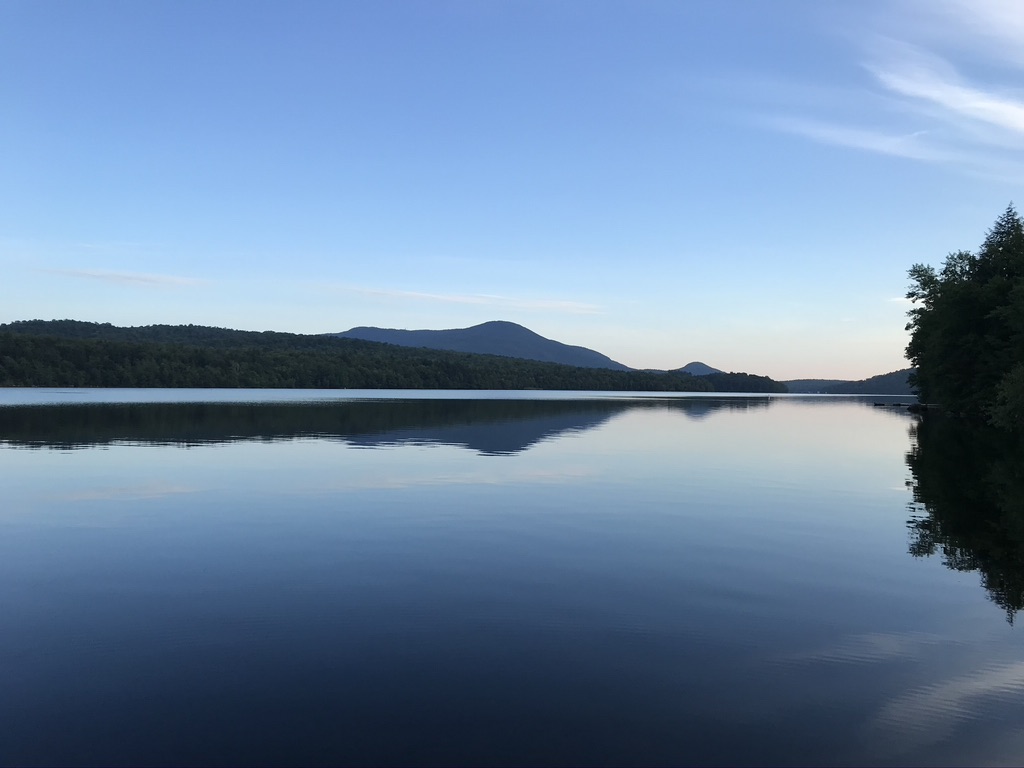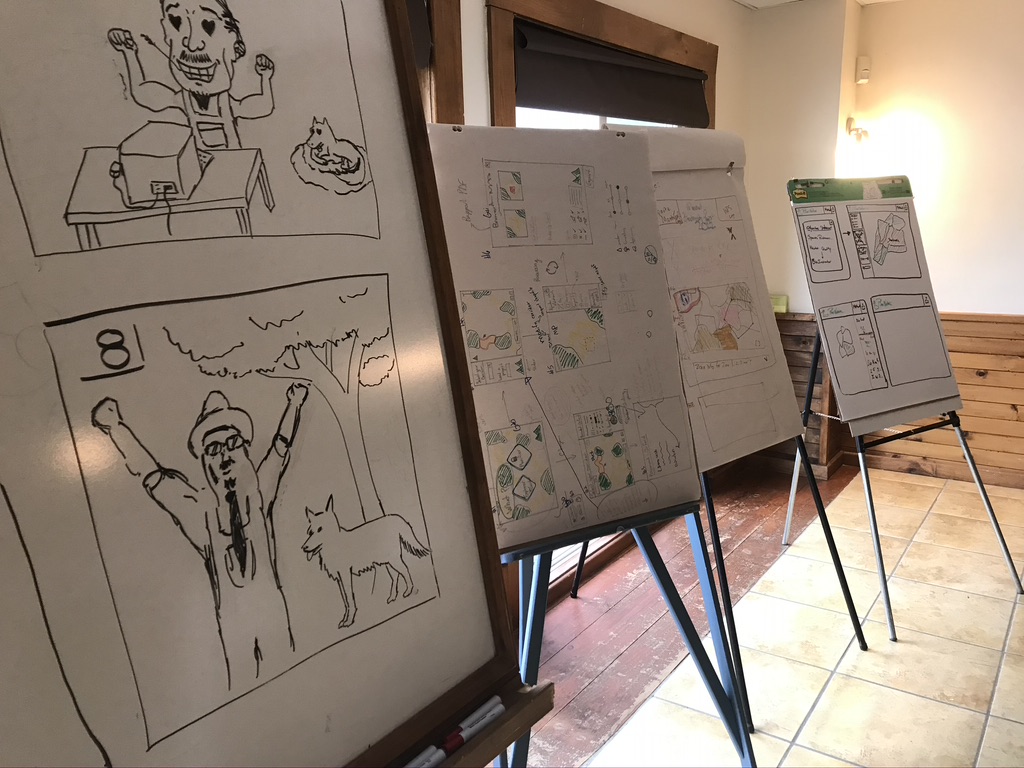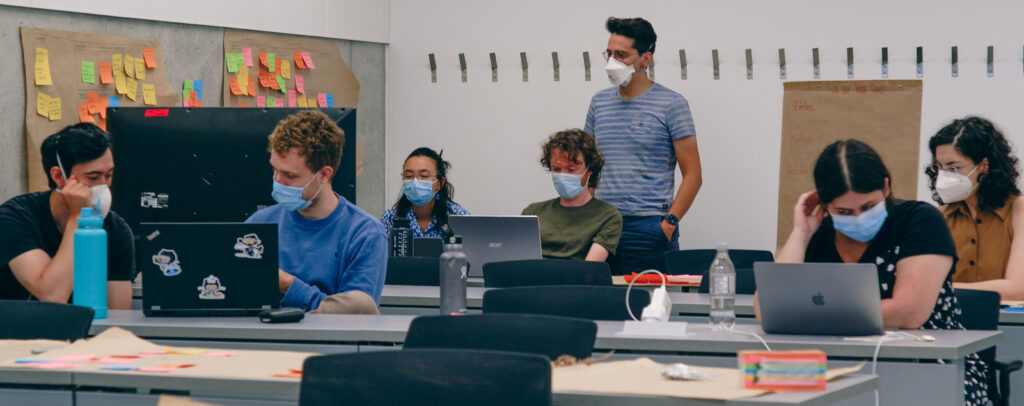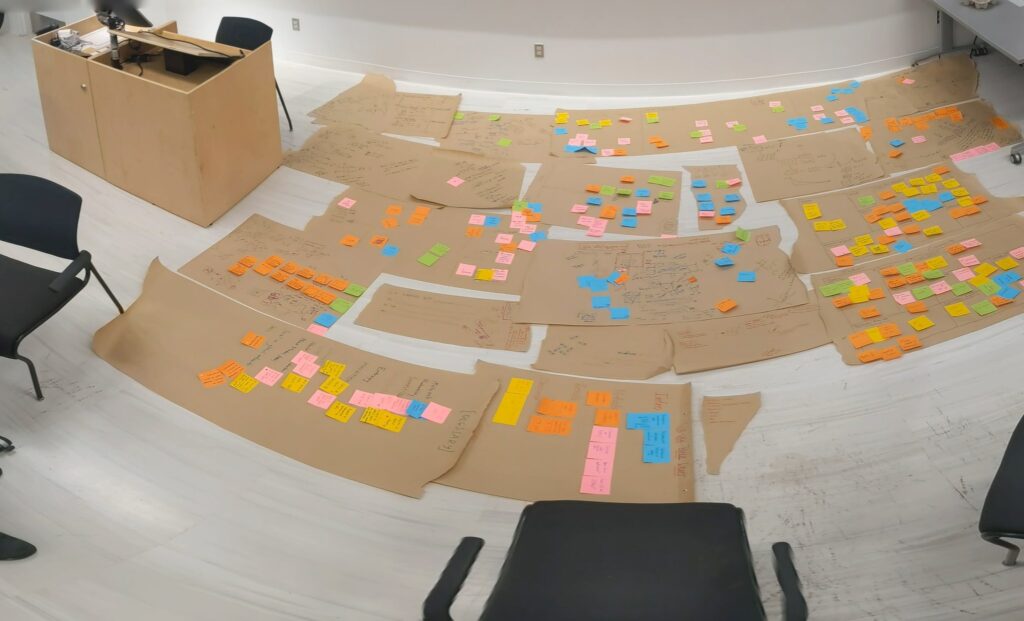This summer has been busy with the return of in-person events. This blog post is a look back at a few notable events for several members of the BIOS2 community. Indeed, we met (and/or met for the first time) at the Ecological Society of America 2022 annual meeting held in Montreal in August, as well as at the annual BIOS2 summer school in biodiversity modeling, which had as its theme Biodiversity Change and Data Visualization. In addition, two working groups organized by members of the BIOS2 program were held in Sherbrooke in May and in Montreal in August.
Ecological Society of America (ESA) 2022 Annual Meeting in Montreal
The BIOS2 community had the chance to meet at the ESA annual meeting held in Montreal from August 14 to 19. Several members of the program took the stage to present their projects: Aliénor Stahl, Francis Banville, Jake Lawlor, Katherine Hébert, Pierre Rogy, Varina Crisfield, William Ou, Zihui Wang and others! Members of the program also distinguished themselves by organizing an Inspire session on the issue of food webs in space. Congratulations to Gabriel Dansereau, Francis Banville and Andrew MacDonald.
BIOS2 Summer school, Jouvence (Orford, QC)
The 2022 version of the BIOS2 summer school took place on August 22-26 at the Resort of Jouvence, in Mont Orford National Park, Quebec, on the theme of Biodiversity Change and Data Visualisation. Participants were given the challenge of developing and presenting a communications and data visualisation strategy to meet real-world needs. Throughout the week, students worked through the steps of designing an interactive online dashboard project, including defining the communications challenge and identifying a target audience. The students worked in collaboration with five different partners to address real-world challenges, including the consulting firm WSP, the City of Sherbrooke, the Appalachian Corridor, the Union of Agricultural Producers of Estrie, and the Canadian Parks and Wilderness Society (CPAWS). Several workshops were provided by guest speakers to introduce students to different approaches to design, including Design Thinking by Jean-François Bolduc, Creating Value from Data (Business Intelligence) by Daniel Chamerland-Tremblay, Information and Data Architecture and Dashboard Design by Vincent Beauregard, Essential Biodiversity Variables by Dominique Gravel, Journalism at La Presse by Éric-Pierre Champagne, and Data Visualisation Design: Process and Principles by Thomas Hurtut.
Working Group about ecological change in the southern Gulf of St. Lawrence
A working group took place at the beginning of the summer semester in Sherbrooke, QC (May 2 to 6, 2022). Organized by F. Guillaume Blanchet and Nicolas Rolland and supported by CIEE and BIOS2, the in-person working group “50 years of ecological change in the southern Gulf of St. Lawrence” was a follow-up of a projected initiated online in the fall of 2020. The objective was to study the changes in occurrence and abundance among the marine fishes and invertebrates found in the Gulf of St. Lawrence (sGSL) through space and time using data from bottom-trawl survey carried out every September in the sGSL since 1971. For every survey period, other ecological and environmental factors such as temperature, salinity, fluorescence, nutrients, phytoplankton, zooplankton, etc. were also gathered. To analyze these data, the participants relied on spatiotemporal barrier model. The influence of the environment was tested through five hypotheses defining the energy, productivity, climatic, habitat constraint and stress mechanisms influencing the distribution of the over 100 species considered. In short, a lot of changes have been occurring in the sGSL resulting from ecological and environmental changes but also from political and social decisions that impacted the spatial dynamic of marine species. The results of this project were presented at the ESA annual meeting and should be published soon.
Working group on food webs in Canada
The working group “Black holes and revelations: Identifying priority sampling locations for local food webs in Canada”, organized by Gabriel Dansereau, Michael Catchen, Francis Banville and Tanya Strydom, was held at the Université de Montréal from August 22 to 25. The objective of the working group was to recommend new sampling sites for ecological networks in order to effectively reduce the uncertainty associated with the composition of ecological networks in Quebec. The participants worked on the implementation in Julia of methods to recommend sampling sites according to different criteria to be optimized. These methods are now part of the BiodiversityObservationNetworks.jl package (https://github.com/EcoJulia/BiodiversityObservationNetworks.jl). The use of these methods in the context of ecological networks has led to many discussions, notably on the interpretation of interaction probabilities in a spatial context and on the development of a “curiosity” score for probabilistic networks, which will be the focus of new projects. More to come!





